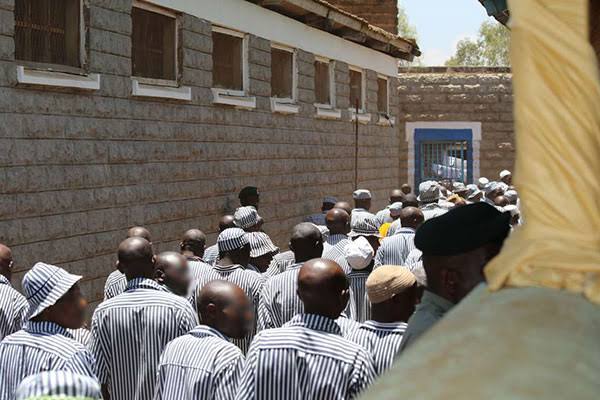NAIROBI, Kenya, Jun 28- The Kenya Prisons Service has moved in to prevent radicalisation and recruitment to terrorism of prisoners sentenced for other offences, not related to the vice, by adopting new strategies.
Already, KPS in partnership with the National Counter Terrorism Centre (NCTC) and the Global Centre on Cooperative Security (GCCS), has developed measures that will be used to prevent the menace.
KPS Commissioner General Wycliffe Ogallo says the service has since identified correctional facilities to be used for holding violent extremism prisoners- where they shall undergo various programmes, in a bid for them to be reformed.
“Violent extremist offenders can easily incubate and propagate terrorist ideology while incarcerated and therefore prison officials have continuously devised new strategies and the solutions in managing Violent Extremists Offenders (VEOs),” he said.
He was speaking on Monday during the Countering Violent Extremism in Prisons (CVE-P) Awareness Raising Course that was developed by experts from NCTC, KPS, and the GCCS.
He added that, “The service attaches a lot of importance towards management of violent extremism offenders who fall in this category of high-risk offenders and the concerns associated with their possibility to attract new recruits while incarcerated or plan attacks upon release.”
The CVE-P program in Kenya was established in 2015 by the NCTC in cooperation with the KPS and the GCCS.
The report calls for demilitarization of how violent extremist offenders are handled, to ensure they not only remain a source of intelligence, but they are also reformed.
But this, the report points out, should be initiated by a proper risk assessment of prisoners, in a bid to inform who poses what level of risk.
“The proper risk assessment of prisoners is one of the fundamental components of good prison management policies. The management of prisoners cannot be successfully undertaken without assessments of the risks they pose,” reads the report.
On housing, the prison managers will have to determine whether to separate violent extremisms offenders from the rest of the prisoners.
According to the report, separating them from the general population could make it easier for authorities to manage and reduce the risk of them radicalizing others to violence, but warns that it poses a threat.
“Separation may elevate their status in the eyes of other prisoners or groups in the prison population, which plays into the narrative of radicalizers, who either feel special or persecuted,” it reads.
“Radicalisation primarily stems from a combination of institutional, social and individual factors such as overcrowding and deprivation, violence and group dynamics. Overcrowding creates stress and induces inmates to create subgroups that compete over scarce resources and social status.”
Want to send us a story? Contact Shahidi News Tel: +254115512797 (Mobile & WhatsApp)


